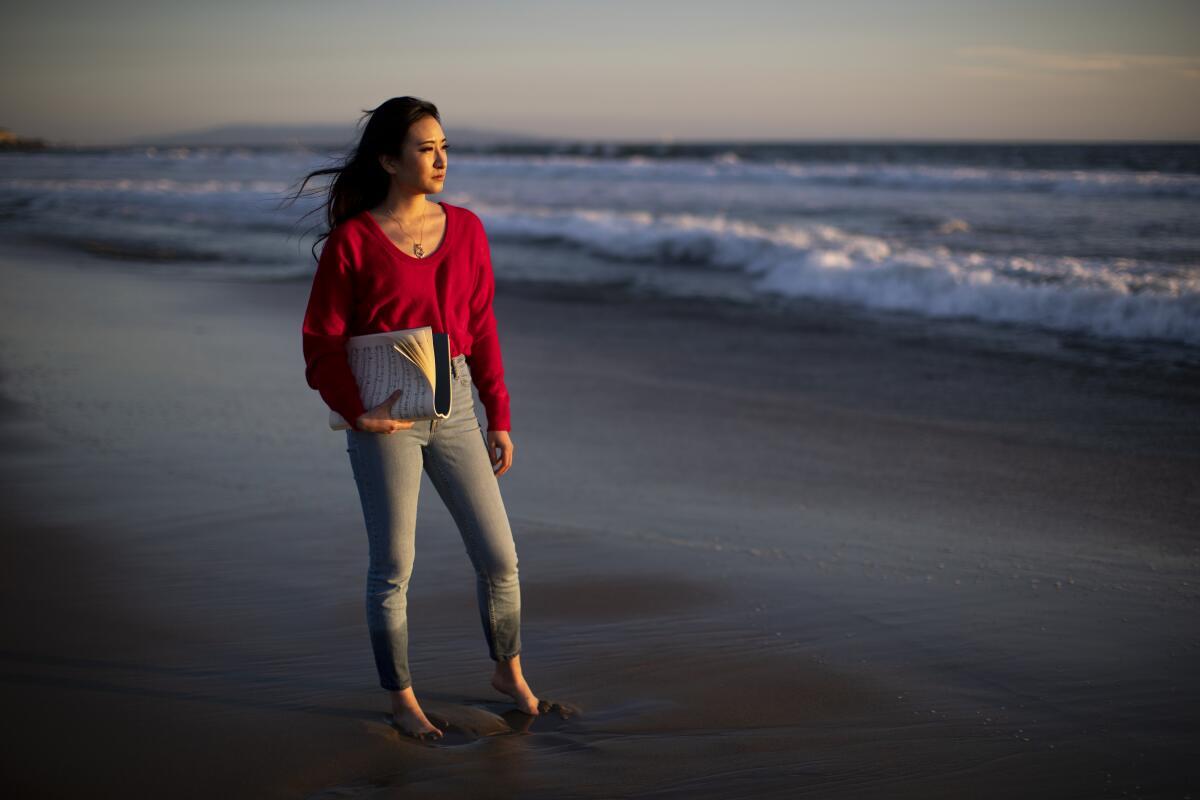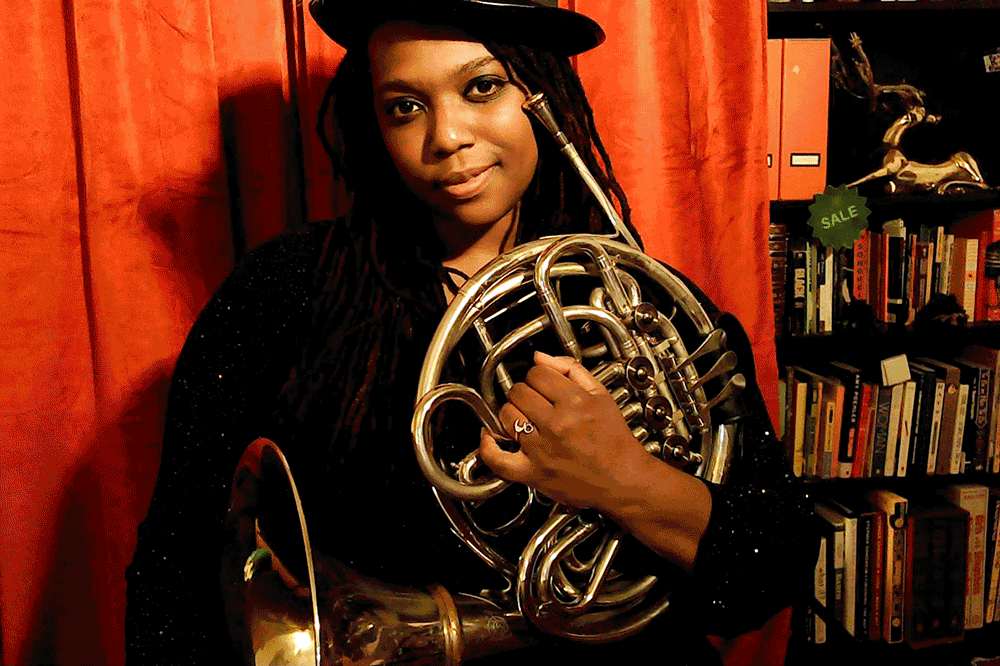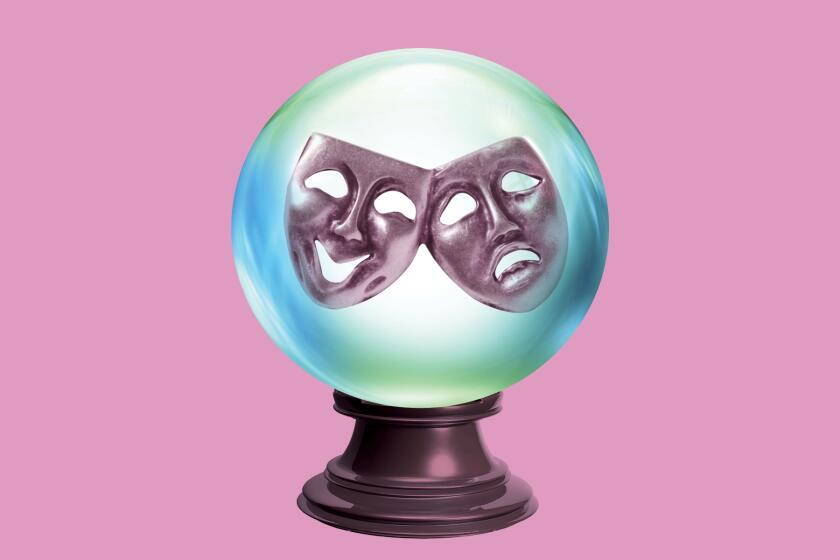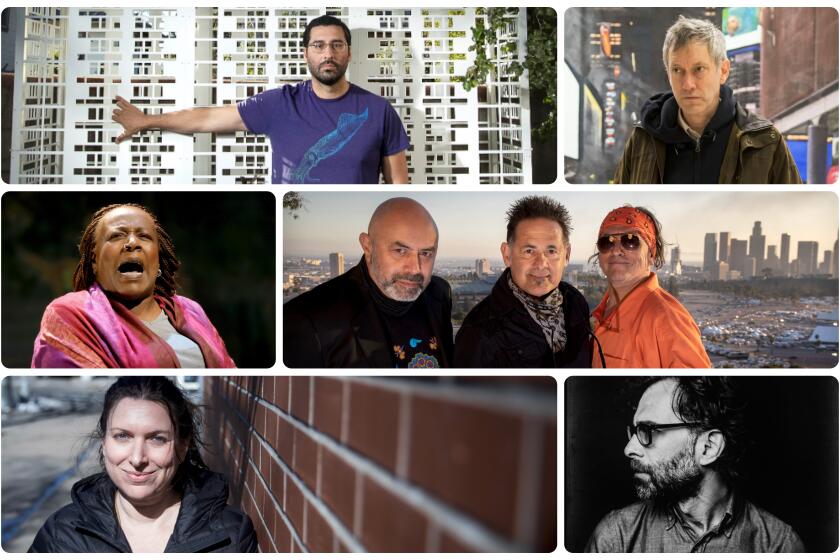‘Why have I only ever played music by white guys?’ An L.A. pianist’s fight against systemic bias

Pianist Sharon Su found it hard to keep up her musical practice without the promise of live performances. She realized she wasn’t alone.
- Share via
During her conservatory training, L.A. pianist Sharon Su had been taught to stick rigidly to the classical canon, which prompted her to pose the question: “Why have I only ever played music by white guys?”
Recognizing systemic bias, Su began playing and recording work by female composers, including Clara Schumann, Louise Farrenc and Cécile Chaminade. As a freelance musician, when she’d play a concert, a salon or a private party, she’d tell her listeners a bit about the composers and why they mattered. Audiences responded with overwhelming positivity, so she kept it up.
Violinist Melissa Tong landed her dream job playing a Broadway musical. Then the pandemic became the ultimate showstopper. She’s one of 11 classical musicians from both coasts who share their stories of struggle, survival and hope.
In the months leading up to the coronavirus shutdowns, she was working with a composer to transform a sonata by the 19th century German composer Fanny Mendelssohn Hensel, sister of Felix Mendelssohn, into a concerto. The pandemic blazed into the States just as Su was discussing a concert tour for the work and a possible first date with an ensemble in Boston.
“My goal was to perform a concerto within 10 years of being out of school,” says Su. “It was going to be a personal success to be able to do this. It was very disheartening when COVID hit.”
She considers herself extremely lucky to live with a fiancée who kept working during the pandemic, so she didn’t have to worry about finances. Her anxiety was psychic and emotional. As a dedicated live performer, it was difficult to operate in a world without an audience. She found online concerts dispiriting, and she felt drained when she tried to record herself at home. She struggled with not feeling inspired.
There’s a stigma that if you’re struggling, you’re not a real musician, and it’s kept musicians from talking about the truth of the situation.
— Sharon Su, pianist
“I realized as COVID went on, that even though I love music, it is incredibly hard to keep going when you have absolutely no deadlines or events or reason to keep going,” she says. “The reason I went into performance is because I fell in love with being in the room, and giving people what they need in that moment.”
As the one-year anniversary of the COVID-19 pandemic arrives, we want to hear from Angelenos in the theater industry about what life has been like since.
She found herself trying to justify why she wasn’t making the most out of the pandemic. Looking on social media, it seemed like that was what you were supposed to do. She felt alone in her thoughts, so she took to Twitter and wrote, “Please tell me it’s OK to not practice anymore.” She was shocked, but heartened, to realize that the vast majority of those who responded said they could totally relate.
The World Health Organization announced the coronavirus outbreak had become a pandemic on March 11, 2020. Since then, the virus has seemingly touched all aspects of life in Southern California and beyond. The Times looks back on a full year of life in a pandemic.
“There’s a stigma that if you’re struggling, you’re not a real musician, and it’s kept musicians from talking about the truth of the situation,” Su says.
Su could not actually stop practicing altogether. She had to keep up her finger strength and responsivity. She had to maintain a baseline because she knew that one day this painful period of time would be over, and that she would play concerts again.
“We’re back in talks to get that concerto tour up and running, but only one ensemble has committed because everybody’s budgets are shot.” she says. “Still, I feel like it’s easier when you have an actual deadline, even if it’s hazy.”
Daniel Fish, Culture Clash, Dael Orlandersmith, Richard Maxwell, Annie Dorsen and Lars Jan reveal much loss — but also see a way forward.
More to Read
The biggest entertainment stories
Get our big stories about Hollywood, film, television, music, arts, culture and more right in your inbox as soon as they publish.
You may occasionally receive promotional content from the Los Angeles Times.















